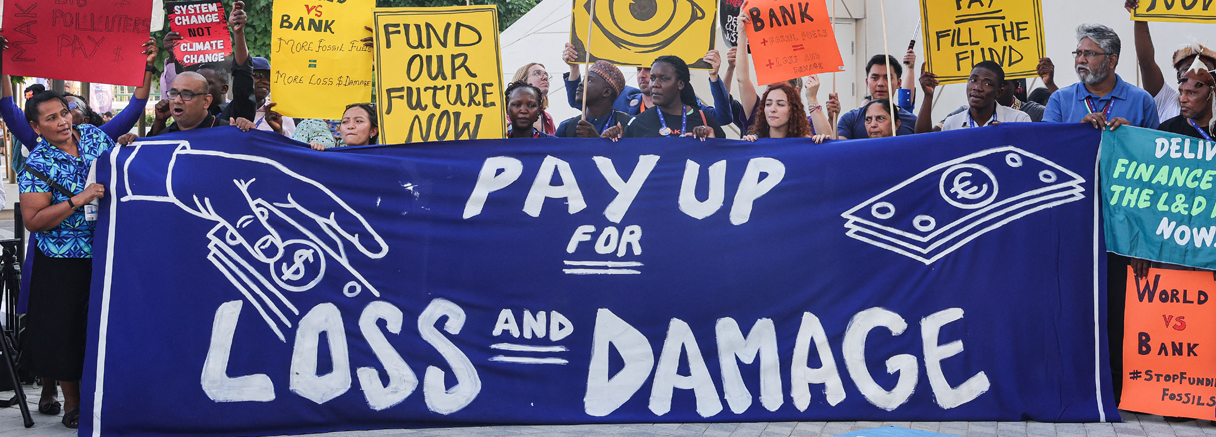Global economy takes a hit as climate change drains billions from world GDP

As COP28 negotiations are underway, the report by the University of Delaware shows that in 2022, low-income countries were hardest hit by climate change, experiencing economic losses that could exceed 10 per cent of their GDP.
Globally, climate change led to a global loss of 1.8 per cent of 1.8 per cent, equivalent to approximately US dollars 1.5 trillion. When calculated considering impacts borne by the average person, the global GDP loss was 6.3 per cent of the global economic output.
The report underscores the uneven distribution of these impacts, with low-income countries and tropical regions suffering the most. Southeast Asia and Southern Africa are particularly vulnerable, with nations experiencing average GDP losses of 14.1 per cent and 11.2 per cent, respectively.
The report points out that climate change is exacerbating existing global inequalities. Interestingly, while developing countries were feeling the burden, some high-income countries benefited, thanks to warmer Europe and saw a five per cent GDP rise.
These advantages, the report warns, are expected to erode as the planet continues to warm. Hotter summers' energy and health impacts are anticipated to offset the benefits of milder winters.
“The world is trillions of dollars poorer because of climate change, and most of that burden has fallen on poor countries. I hope this information can clarify the challenges many countries face today and the support they urgently need to address them,” says Dr James Rising, the study’s author.
In addition to outlining the impact on key UNFCCC negotiating groups and stakeholders, the report delves into the intricate dynamics between climate change, economic outcomes, and capital investments.
Low and middle-income countries, in particular, face significant capital losses, posing challenges to their long-term economic resilience and growth. The study reveals that low and middle-income countries have experienced US dollars 2.1 trillion in produced capital losses due to climate change.
When considering the combined impact of GDP and capital losses, the report estimates that low and middle-income countries have suffered a total loss of US dollars 21 trillion since the Rio Convention’s adoption in 1992.
The analysis, the authors say, does not account for non-market losses and impacts.
At the COP27 climate summit held in Egypt, countries agreed to set up a fund to pay for the climate related irreversible impacts in the world and especially affecting vulnerable communities. For instance, extreme weather events are causing loss of human life and ravaging droughts.
This fund is referred to as the loss and damage fund. Some quarters refer to it as “climate reparations”. To discuss the operationalism of the fund, a transition committee was formed comprising 24 members, including 14 members from developing countries and 10 from developed nations.
As negotiations unfold at this year’s COP28 talks in Dubai, commencing this Thursday, one pivotal point of discussion revolves around the newly agreed-upon details of the climate fund. A central focus of these deliberations will be determining the contributors to the fund and the corresponding financial commitments. The intricacies of who contributes and the amounts pledged are anticipated to be key elements in shaping the trajectory of the climate finance agenda.